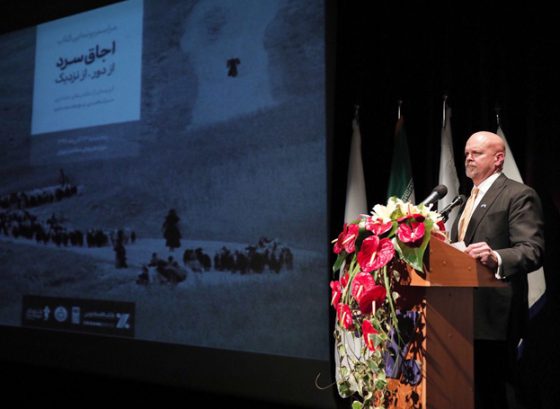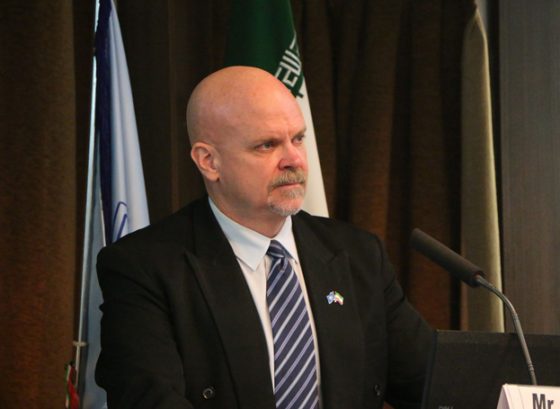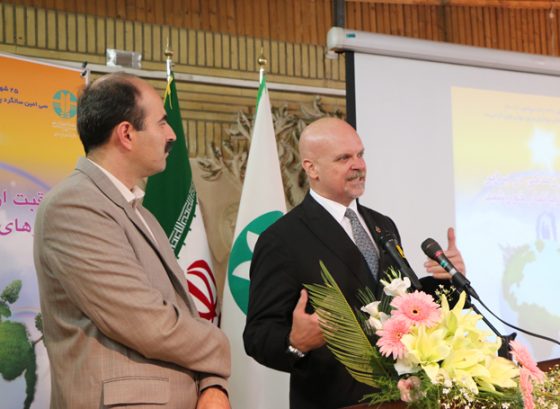Encouraging Iranian businesses to safeguard the environment

In today’s energized Iran – where, at present in the post-sanctions era, so much has become possible – now, more than ever, the public and the private sectors have a crucial role to play in the social, environmental and economic betterment of their communities, AVA Diplomatic reports.
To highlight this important role, the “First International Conference on Education and Educational Processes of Banks and Insurance” was held on 14 February at Shahid Beheshti University in the presence of Dr. Ali Divandari, Head of the Monetary and Banking Research Institute of Iran, representatives from banks and insurance companies, diplomats, and the UN Resident Coordinator and UNDP Resident Representative, Mr. Gary Lewis.
Speaking at the opening, Dr. Divandari emphasized that in Iran, the banking system in Iran needed to be modernized. He noted that the banking system is directly intertwined with the country’s economy, and felt that, “especially at this important time for Iran – in the post-sanctions era, such modernization will allow people to receive better service and have easier access to information and data.”
The “First International Conference on Education and Educational Processes of Banks and Insurance” was held at 14 February in Shahid Beheshti University
Mr. Lewis addressed the need for the business community in Iran to learn about – and embrace – more Corporate Social Responsibility or CSR.
CSR means voluntary activities which are undertaken by a company to operate in an economic, social and environmentally sustainable manner.
“CSR needs to be recognized as a strategic management tool,” said Mr. Lewis, “in order to influence corporate decisions and filter down to operations.”
Emphasizing the need for collaboration and the positive consequences of adopting Corporate Social Responsibility, Mr. Lewis added, “CSR will enhance your corporate reputations. For this reason, CSR should no longer be considered as a luxury item available only to large enterprises. Everyone has a part to play.”
How – and where – should such corporate funding be invested in Iran?
Mr. Lewis suggested that one of the biggest human development challenges faced by Iran is the threat to the environment. He noted that the government and the United Nations were working to tackle many of these challenges. Top among them are: water stress, desertification, deforestation, the inefficient use of energy, air and water pollution, dust and sand storms – and finally – the disastrous loss of biodiversity.
Mr. Lewis encouraged private sector organizations, public corporations and banks to partner with the UN to conserve and preserve Iran’s environment. He noted that each and every citizen has a role to play.
Mr. Lewis concluded by saying: “My sincere hope is that you will decide to join those of us who are already hard at work in Iran to safeguard our environment. Our growth must be inclusive. Our development must be sustainable. And our fragile, endangered planet must be protected”.




